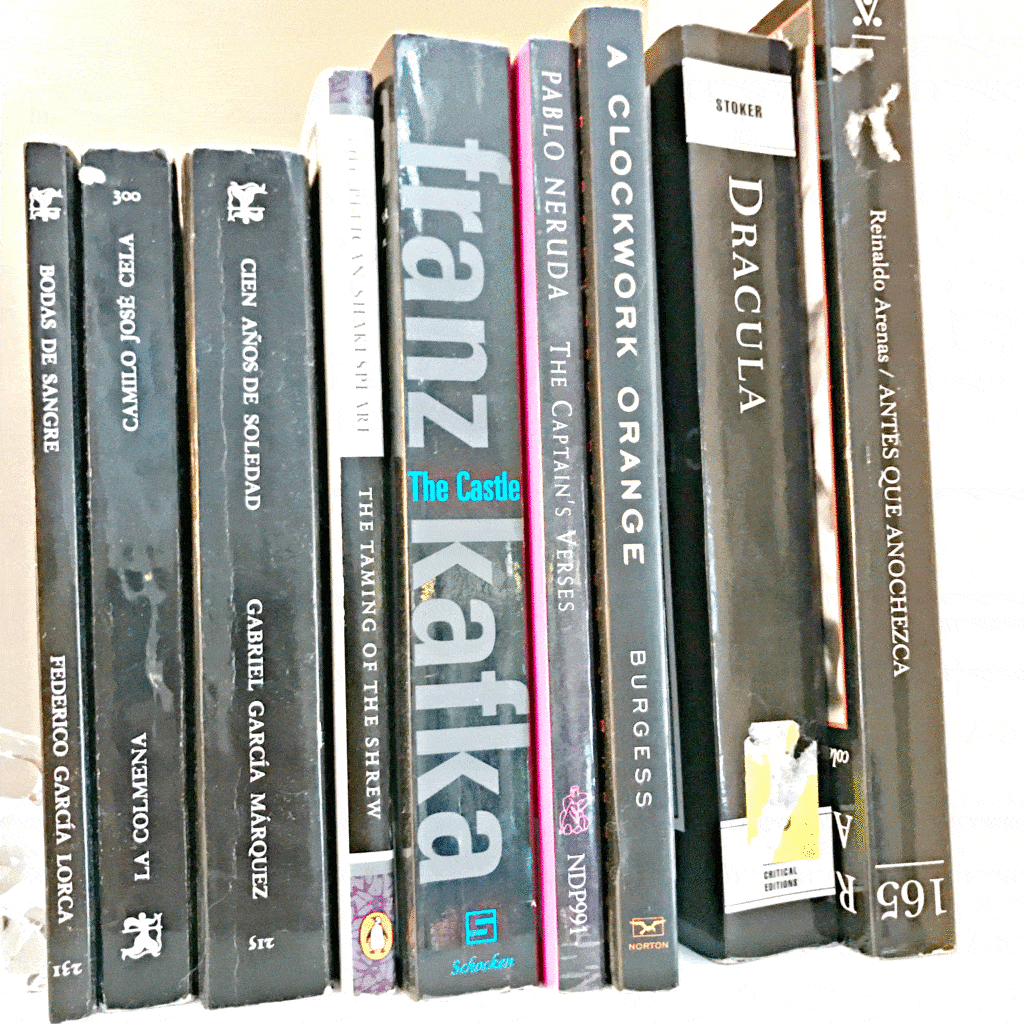For some of us, learning how to read was the easy part. The hard part is learning how to stay focused while reading. In other words, how do we stop zoning out?!
Here’s a scenario you might recognize: You’re starting a new book in English class. You’re excited. Maybe this one will be good. Maybe this one won’t have a metaphor in every third sentence. (Actually – yeah – it probably will.)
You open the book. Alright – you’ve got this. You’re going to read for an hour straight. Go.
But five minutes later, you realize that you have absolutely no idea what you just read. No clue. For a million dollars you couldn’t tell me if the book was about Abraham Lincoln or unicorns.
This happens to the best of us. I call it the “fake-reading syndrome.” As in, you got faked out and thought you were reading.
All humor aside though, this situation can be a tough one. We all zone out once in a while as we read, sometimes due to external distractions like a noise or a voice, but also sometimes due to internal distractions, such as hunger, stress or antsy thoughts. For those of you who deal with ADD/ADHD, you know what I mean when I’m referring to “internal distractions”! If you have ADD/ADHD, here are three reading tips for you.
There are ways to get through these moments. But more importantly, there are ways to prevent these moments. So let’s start there.

Some of my favorite books on my own bookshelf. And yes, even I zone out while reading my favorites!
How to stay focused while reading — and how to PREVENT zoning out
1. Find the right setting.
Before you begin reading, pick the right environment. The last place you want to settle down to read a “heavy” book is your bed or a comfortable chair where your body is accustomed to letting down its guard, relaxing and snoozing. I call these places “narcoleptic zones.” Instead, seek out a place just on the edge of being uncomfortable. Perhaps sit at a kitchen table if it’s quiet in your kitchen, a library, or the floor. Just find an environment that doesn’t promote sleep, and you’ll reduce your chance of falling asleep with a book on your face. Here’s some cool ideas about where to study.
2. Read aloud.
Now hear me out on this one. You might feel a little silly at first, but reading aloud can have a huge effect on your reading focus, as well as on your retention of the material. We read slower when we read aloud than we do when we read in our heads. And this subtle downshift in reading pace, coupled with the fact that you’re hearing the words, can dramatically improve your reading experience. If you really feel silly doing this, read to your dog or cat for an audience. (Although that’s not exactly not weird!) But seriously, if you’re wondering how to stay focused while reading … real aloud!

Some more of my favorite books on my personal bookshelf.
3. Annotate.
Annotate means to take notes. So as you read, underline important information, write in the margins, circle new character names any time they come up, write down questions, etc. You can either write directly in the book if you own it, or you can use sticky notes or a separate notebook. Taking notes as you read is a great way to stay engaged, interested, focused and — honestly — awake.
4. Love what you’re reading.
I know this tip sounds ridiculous. In a perfect world, everything you read would be right up your alley. In my perfect world, I would only ever read about food, cats, food, running, organizing and food. But of course, we’re all going to be faced with reading material that we don’t enjoy – either because we don’t like the topic, the language it’s written in, or whatever. But the trick is to pretend you love it. Pretend it’s the best thing that’s ever happened to your eyeballs. Pretend that it’s going to change your life. Fake it ‘til you make it!
But really, think about it. The material isn’t going to change. So your attitude has to. The book is already written, but your attitude towards it isn’t. So do what you have to do to manipulate your mind into thinking you love the book.
5. Listen to an audio version.
This tip for how to stay focused while reading is my absolute favorite “reading” strategy ever. There are some terrific apps out there that let you download the audio book version of whatever you have to read. It costs a few bucks, as does anything, but you can listen to the book while you’re walking, exercising, traveling, cleaning your room, whatever. Or, you can listen to the audio and follow along with the book at the same time. Seriously, give this a try. If you listen through an app on your phone, you can take the book anywhere. Or you can actually get the CD version for free at basically any library ever. Audio books changed my reading world. I personally use (and love!) the app Audible (by Amazon) – but there are many.
What to do if you’ve already zoned out:
So what do you do if it’s too late, if you already lost your focus, zoned out completely and wasted 15 minutes of “fake reading”? You go back and re-read. That’s what you have to do. No way around this one.
But the key to staying focused while reading is that you have to CHANGE something this time. If you just go back a few pages and try again, you’ll likely check out again for the same reasons you did the first time. So for round 2, here’s what you can do differently:
- Change your environment: Get up, move around, pick a new chair, go to a different room.
- Change your input method: Examples include switching from reading silently to reading aloud, or listening to the audio version if you were reading silently.
- Annotate: Take notes if you didn’t annotate the first time. And try using a cool colored pen. There’s something about color that keeps our eyes open.
- Go for a walk! I swear – go for a 10-minute walk or do 100 burpees or jumping jacks before you sit down to read again. If you think this is nuts, try it. There’s tons of science that proves the relationship between exercise and focus: It has to do with the brain chemicals that we release during exercise. (Here’s an article about that here. And here’s a more science-y article about that here.)
So those are my tips for how to stay focused while reading. I hope some or all of them helped you. But please, don’t think you’re the only one who this happens too. It really does happen to us all. But knowing how to reduce your risk of zoning out, and knowing how to deal with it once it happens, are key school habits to develop early on.

